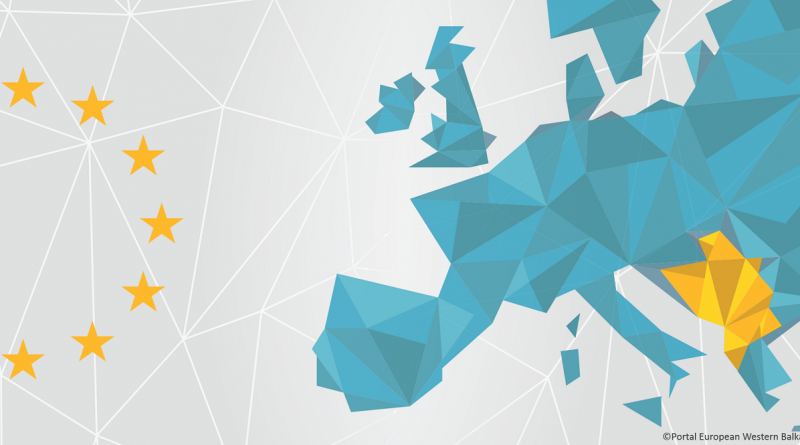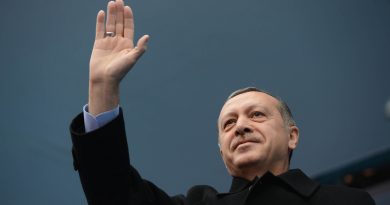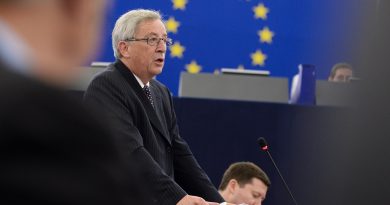Open lecture review: “Balkans: More seats at the EU or an elephant in the room?”
On 23 March, CEI-IUL and the Conflicts, Peacebuilding, and International Regulation Seminar of the Master in International Studies hosted a conference on the Balkan countries entitled: “Balkans: More seats at the EU or an elephant in the room? European integration and geopolitical challenges.”
It was an open lecture given by Ricardo Alexandre, a journalist of RTP primarily dealing with international issues, and a researcher at CEI-IUL. Ricardo Alexandre has a PhD in Political Science/International Relations and has worked in multiple international scenarios for RTP has a journalist.
The main objective of the lecture was to analyse European integration in the Balkan region. Mentioning the EU’s motivations and objectives concerning this enlargement, but primarily approaching this topic from the point of view of the Balkan countries. To conduct this analysis Ricardo Alexandre went through an historical contextualization and then spoke about more recent developments in this area.
The lecture began with a contextualisation of the collapse of communism and the disintegration of former Yugoslavia; briefly going through the Bosnian War (1992/95) and the Dayton Agreement of 95; subsequently looking to the situation of Kosovo, and the Brussels Agreement of 2013 that normalized the relations between Kosovo and Serbia; and finally talking about Serbia in a more detailed manner, referring to three important and distinct political moments.The contextualization was followed by more recent developments, chiefly among them the EU agenda towards the Balkan countries and estimated dates of accession, as well as an analysis, from a geopolitical viewpoint, on how the Balkan region fits in the EU and what sort of informal status these countries are likely to have therein. Mentioning as well still prevalent border disputes and how those impact and conditioned EU integration. And finally going through what type of alternatives the Balkan countries have to EU integration, including Russia, China, and Turkey.
Despite the Euroscepticism, and the “euro fatigue” and the consequences it has both externally by pushing way and demotivating the Balkan countries to enter the EU, and internally, by conditioning the EU’s capacity to represent itself as a coherent and united actor, the lecturer argued that the skepticism towards the EU is just another motive the EU has to expand to the Balkan region. It started with Slovenia in 2004, and Croatia most recently in 2013; Serbia and Montenegro are scheduled to enter formally in 2025; then Macedonia and Albania have an informal accession process already in play, although no real scheduled accession date; Bosnia-Herzegovina has requested; and finally Kosovo, eventually in a remote future -although it will be by no means easy, given the fact that a host of European countries do not formally recognize its independence and EU accession requires unanimity.
Historical contextualization: Bosnia, Kosovo, and Serbia
The Bosnian War started officially in 1992 and ended with the Dayton Agreement signed in 1995. It is worth mentioning that this war was primarily fought between the Bosnian Muslim population and the orthodox Serbian community in Bosnia, intensified by the Serbian presidency of Slobodan Milosevic, a Serbian nationalist devoted to Serbian hegemony over the region. The Srebrenica Massacre of 1995, an ethnic cleansing that claimed the lives of around 8.000 Muslim Bosniaks, later brought several Serbian officials to international courts. The Dayton Agreement resulted in consequences for the internal administrative division of the Bosnian territory into the Federation of Bosnia-Herzegovina and the Republic of Srpska, and a third region, the Brcko District under local government.
After Brussels and Strasburg, Sarajevo is the third most important site when it comes to European delegations worldwide, exemplifying the EU’s investment in Bosnia. It is pertinent to indicate also the significant role that the EU had and has in positively influencing the Balkan region and contributing to a stable environment, and if not to a formal peace agreement, at least to a cessation of immediate armed conflicts.
As for Kosovo, it is worth mentioning first the war, that lasted between 1998 and 1999, that resulted in the Serbian withdrawal of the region and the international UN administration of Kosovo. Then in 2008 Kosovo’s unilateral proclamation of its independence, having been recognized by 113 UN countries. Nonetheless, relations with Serbia were still very precarious due primarily to the Serbian population still living in Kosovo. And finally, the Brussels Agreement of 2013, as previously mentioned, which normalized relations between these two countries.
Lastly concerning Serbia, it is worth mentioning as previously stated, three distinct political moments: the first one covering Milosevic’s presidency over Serbia (1991-1997); the second covering the democratic party’s rule over Serbia with Boris Tadic as president from 2004 until 2012; and ever since 2012, the SNS (Serbian Progressive Party) under Tomislav Nikolic has ruled the country, representing a break with the previously SRS (Serbian Radical Party).
While Milosevic was a Serbian nationalist with a populist undertone, thus being a bit, to put it mildly, sceptic towards the EU, Boris Tadic represented a shift of Serbin political objectives and motivations towards the EU, turning Serbia into a pro-EU country. The SNS and Nikolic consecrated the very unique Serbian ambiguity, with a formal rhetoric that places Serbia close to the Union, but at the same time China’s loans and Russia’s proximity do not help the relationship with Europe. Another setback to Serbian-EU relations is the situation of Ukraine. The Union stresses the importance of Serbian foreign policy to enter into alignment with EU foreign policy. In other words, Serbia has to break with its neutrality when it comes to Ukraine and clearly disavowing Russian’s activity in the region.
The “periphery of the periphery”
Ricardo Alexandre also spoke about what the Balkan countries would represent within the Union. Quoting Dimitar Bechev: “the periphery of the periphery”. With Northern Europe, and especially Center Europe at the heart of European politics, Southern Europe at the periphery, and the Balkans, as a consequence, the ‘periphery of the periphery’.
At the end of the lecture, Ricardo Alexandre spoke about the persistence of border disputes in the Balkan region, and analysed the alternatives presented to the Balkan countries in addition to EU integration.
First the border dispute between Slovenia and Croatia has improved with both countries’ accession in the EU, although Slovenia hanged this disputed over “Croatia’s head” when Croatia tried to enter the EU. And Croatia, in turn, is doing the same thing to Serbia.
The alternatives to EU integration from the point of view of the Balkan countries would be Russia, China, and Turkey. Athough Russia, in Ricardo Alexandre’s view, is the more important and influential alternative, given the historical and cultural link between Russia and the Balkan countries – especially Serbia and Montenegro – and the political and economic investment of Russia in the region. Turkey primarily tried to influence Serbia, and China most recently has presented itself as a third alternative, not demanding the internal consolidation of the democratic process as the EU demands, and being less economically demanding than Russia, clearly demonstrating its intention to assume a relevant international position.
![]() This work is licensed under a Creative Commons Attribution-NonCommercial-ShareAlike 4.0 International License.
This work is licensed under a Creative Commons Attribution-NonCommercial-ShareAlike 4.0 International License.




